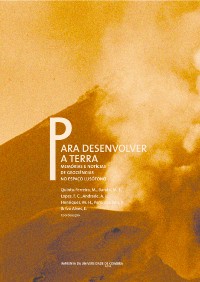Please use this identifier to cite or link to this item:
https://hdl.handle.net/10316.2/31492| DC Field | Value | Language |
|---|---|---|
| dc.contributor.author | Reis, F. A. G. V. | |
| dc.contributor.author | Giordano, L. do C. | |
| dc.contributor.author | Medeiros, G. A. de | |
| dc.contributor.author | Cerri, L. E. da S. | |
| dc.contributor.author | Zaine, J. E. | |
| dc.contributor.author | Mascaro, S. de A. | |
| dc.contributor.author | Pilachevsky, T. | |
| dc.contributor.author | Macedo, J. G. C. de | |
| dc.contributor.author | Amendola, D. de P. | |
| dc.contributor.author | Domingues, L. S. V. | |
| dc.contributor.author | Christianini, A. L. C. | |
| dc.contributor.author | Andrade, C. M. | |
| dc.contributor.author | Lumiatti, G. | |
| dc.contributor.author | Lunardi, M | |
| dc.date.accessioned | 2014-06-23T13:38:41Z | |
| dc.date.accessioned | 2020-09-18T17:20:16Z | - |
| dc.date.available | 2014-06-23T13:38:41Z | |
| dc.date.available | 2020-09-18T17:20:16Z | - |
| dc.date.issued | 2012 | - |
| dc.identifier.isbn | 978-989-26-0531-9 (PDF) | |
| dc.identifier.uri | https://hdl.handle.net/10316.2/31492 | - |
| dc.description.abstract | The environmental licensing in Brazil is the most widely applied environmental management tool because it is a legal requirement for the planning, installation, operation, expansion and deactivation of potentially polluting developments and activities. In this context, the licensing of extraction of sand for construction and clay for red ceramic production showed various laws dealing with the issue, involving different government agencies that need to be consulted. These extractions are, in most cases, developed by micro, small and medium companies, but are fundamental to the development of the construction of the country, acting locally in the vicinity of urban centers. This article aims to analyze the environmental licensing procedures for extraction of sand and clay in the state. For the analysis can be seen that there is a large diversity of laws, only considering the legal requirements of the Environment Secretariat of the State, besides the need to request at least four different government agencies at federal, state and municipal specific authorizations until the issuance of operating license. This situation complicates the understanding of the process, especially as relates to the classification of the enterprise and which projects will be required, making it problematic to planning and economic viability, especially for small companies | eng |
| dc.description.abstract | O licenciamento ambiental no Brasil é o instrumento de gestão ambiental mais difundido e aplicado, principalmente, por ser um requisito legal para o planejamento, instalação, operação, ampliação e desativação de empreendimentos e atividades potencialmente poluidoras. Nesse contexto, o licenciamento de extrações de areia para construção civil e argila para produção de cerâmica vermelha apresentam várias legislações que tratam do tema, envolvendo diferentes órgãos públicos que precisam ser consultados. Essas extrações são, na maioria dos casos, desenvolvidas por micro, pequenos e médios empreendimentos, mas que são fundamentais para o desenvolvimento da construção civil do país, atuando localmente nas proximidades dos centros urbanos. O presente artigo tem como objetivo analisar os procedimentos para licenciamento ambiental de extrações de areia e argila no estado. Pela análise realizada pode‑se verificar que existe uma diversidade grande de legislações, somente considerando os requisitos legais da Secretaria de Meio Ambiente do Estado, além da necessidade de solicitar em pelo menos 4 órgãos públicos diferentes de nível federal, estadual e municipal, autorizações específicas até a emissão da licença de operação. Essa situação dificulta o entendimento do processo, principalmente, no que refere‑se a classificação do porte do empreendimento e quais projetos serão exigidos, tornando problemático o planejamento e até da viabilidade econômica, especialmente, de pequenos empreendimentos. | por |
| dc.language.iso | por | - |
| dc.publisher | Centro de Estudos Clássicos e Humanísticos da Universidade de Coimbra | por |
| dc.relation.ispartof | http://hdl.handle.net/10316.2/24404 | por |
| dc.rights | open access | - |
| dc.subject | Extraction of sand and clay | eng |
| dc.subject | Environmental licensing | eng |
| dc.subject | Procedures | eng |
| dc.subject | Extração de areia e argila | por |
| dc.subject | Licenciamento ambiental | por |
| dc.subject | Procedimentos | por |
| dc.title | Licenciamento ambiental de extrações de areia e argila no estado de São Paulo, Brasil | por |
| dc.title.alternative | Environmental licensing for extraction of sand and clay in the São Paulo State, Brazil | eng |
| dc.type | bookPart | por |
| uc.publication.firstPage | 473 | - |
| uc.publication.lastPage | 481 | - |
| uc.publication.location | Coimbra | por |
| dc.identifier.doi | 10.14195/978-989-26-0531-9_47 | - |
| uc.publication.digCollection | PB | por |
| uc.publication.orderno | 48 | - |
| uc.publication.area | Artes e Humanidades | por |
| uc.publication.bookTitle | Para desenvolver a Terra: memórias e notícias de Geociências no espaço lusófono | - |
| uc.publication.manifest | https://dl.uc.pt/json/iiif/10316.2/31492/218976/manifest?manifest=/json/iiif/10316.2/31492/218976/manifest | - |
| uc.publication.thumbnail | https://dl.uc.pt/retrieve/11298251 | - |
| uc.publication.parentItemId | 52112 | - |
| uc.itemId | 71938 | - |
| item.grantfulltext | open | - |
| item.fulltext | With Fulltext | - |
| Appears in Collections: | Para desenvolver a Terra: memórias e notícias de Geociências no espaço lusófono | |
Files in This Item:
| File | Description | Size | Format | |
|---|---|---|---|---|
| 47-para_desenvolver_a_terra_artigo..pdf | 745.1 kB | Adobe PDF |  |
Items in DSpace are protected by copyright, with all rights reserved, unless otherwise indicated.
